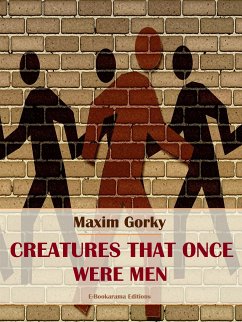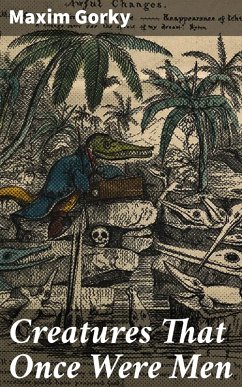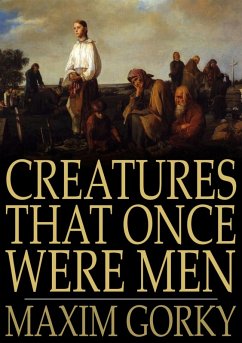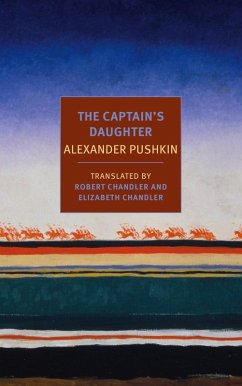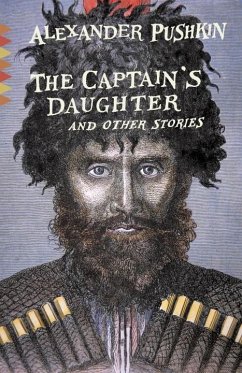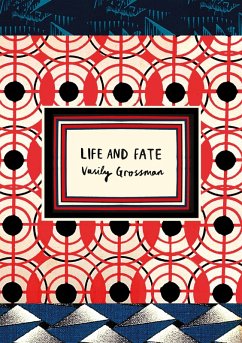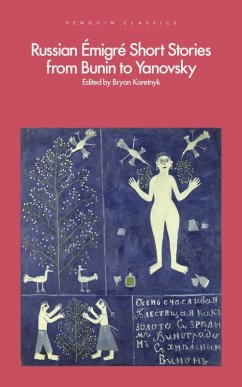
Creatures That Once Were Men (eBook, ePUB)

PAYBACK Punkte
0 °P sammeln!
It is certainly a curious fact that so many of the voices of what is called our modern religion have come from countries which are not only simple, but may even be called barbaric. A nation like Norway has a great realistic drama without having ever had either a great classical drama or a great romantic drama. A nation like Russia makes us feel its modern fiction when we have never felt its ancient fiction. It has produced its Gissing without producing its Scott. Everything that is most sad and scientific, everything that is most grim and analytical, everything that can truly be called most mo...
It is certainly a curious fact that so many of the voices of what is called our modern religion have come from countries which are not only simple, but may even be called barbaric. A nation like Norway has a great realistic drama without having ever had either a great classical drama or a great romantic drama. A nation like Russia makes us feel its modern fiction when we have never felt its ancient fiction. It has produced its Gissing without producing its Scott. Everything that is most sad and scientific, everything that is most grim and analytical, everything that can truly be called most modern, everything that can without unreasonableness be called most morbid, comes from these fresh and untried and unexhausted nationalities. Out of these infant peoples come the oldest voices of the earth.
This contradiction, like many other contradictions, is one which ought first of all to be registered as a mere fact; long before we attempt to explain why things contradict themselves, we ought, if we are honest men and good critics, to register the preliminary truth that things do contradict themselves. In this case, as I say, there are many possible and suggestive explanations. It may be, to take an example, that our modern Europe is so exhausted that even the vigorous expression of that exhaustion is difficult for every one except the most robust.
It may be that all the nations are tired; and it may be that only the boldest and breeziest are not too tired to say that they are tired. It may be that a man like Ibsen in Norway or a man like Gorky in Russia are the only people left who have so much faith that they can really believe in scepticism. It may be that they are the only people left who have so much animal spirits that they can really feast high and drink deep at the ancient banquet of pessimism. This is one of the possible hypotheses or explanations in the matter: that all Europe feels these things and that only have strength to believe them also. Many other explanations might, however, also be offered. It might be suggested that half-barbaric countries, like Russia or Norway, which have always lain, to say the least of it, on the extreme edge of the circle of our European civilization, have a certain primal melancholy which belongs to them through all the ages. It is highly probable that this sadness, which to us is modern, is to them eternal. It is highly probable that what we have solemnly and suddenly discovered in scientific text-books and philosophical magazines they absorbed and experienced thousands of years ago, when they offered human sacrifice in black and cruel forests and cried to their gods in the dark. Their agnosticism is perhaps merely paganism; their paganism, as in old times, is merely devil-worship. Certainly, Schopenhauer could hardly have written his hideous essay on women except in a country which had once been full of slavery and the service of fiends. It may be that these moderns are tricking us altogether, and are hiding in their current scientific jargon things that they knew before science or civilization were.
They say that they are determinists; but the truth is, probably, that they are still worshipping the Norns. They say that they describe scenes which are sickening and dehumanizing in the name of art or in the name of truth; but it may be that they do it in the name of some deity indescribable, whom they propitiated with blood and terror before the beginning of history...
This contradiction, like many other contradictions, is one which ought first of all to be registered as a mere fact; long before we attempt to explain why things contradict themselves, we ought, if we are honest men and good critics, to register the preliminary truth that things do contradict themselves. In this case, as I say, there are many possible and suggestive explanations. It may be, to take an example, that our modern Europe is so exhausted that even the vigorous expression of that exhaustion is difficult for every one except the most robust.
It may be that all the nations are tired; and it may be that only the boldest and breeziest are not too tired to say that they are tired. It may be that a man like Ibsen in Norway or a man like Gorky in Russia are the only people left who have so much faith that they can really believe in scepticism. It may be that they are the only people left who have so much animal spirits that they can really feast high and drink deep at the ancient banquet of pessimism. This is one of the possible hypotheses or explanations in the matter: that all Europe feels these things and that only have strength to believe them also. Many other explanations might, however, also be offered. It might be suggested that half-barbaric countries, like Russia or Norway, which have always lain, to say the least of it, on the extreme edge of the circle of our European civilization, have a certain primal melancholy which belongs to them through all the ages. It is highly probable that this sadness, which to us is modern, is to them eternal. It is highly probable that what we have solemnly and suddenly discovered in scientific text-books and philosophical magazines they absorbed and experienced thousands of years ago, when they offered human sacrifice in black and cruel forests and cried to their gods in the dark. Their agnosticism is perhaps merely paganism; their paganism, as in old times, is merely devil-worship. Certainly, Schopenhauer could hardly have written his hideous essay on women except in a country which had once been full of slavery and the service of fiends. It may be that these moderns are tricking us altogether, and are hiding in their current scientific jargon things that they knew before science or civilization were.
They say that they are determinists; but the truth is, probably, that they are still worshipping the Norns. They say that they describe scenes which are sickening and dehumanizing in the name of art or in the name of truth; but it may be that they do it in the name of some deity indescribable, whom they propitiated with blood and terror before the beginning of history...
Dieser Download kann aus rechtlichen Gründen nur mit Rechnungsadresse in A, B, BG, CY, CZ, D, DK, EW, E, FIN, F, GR, H, IRL, I, LT, L, LR, M, NL, PL, P, R, S, SLO, SK ausgeliefert werden.




